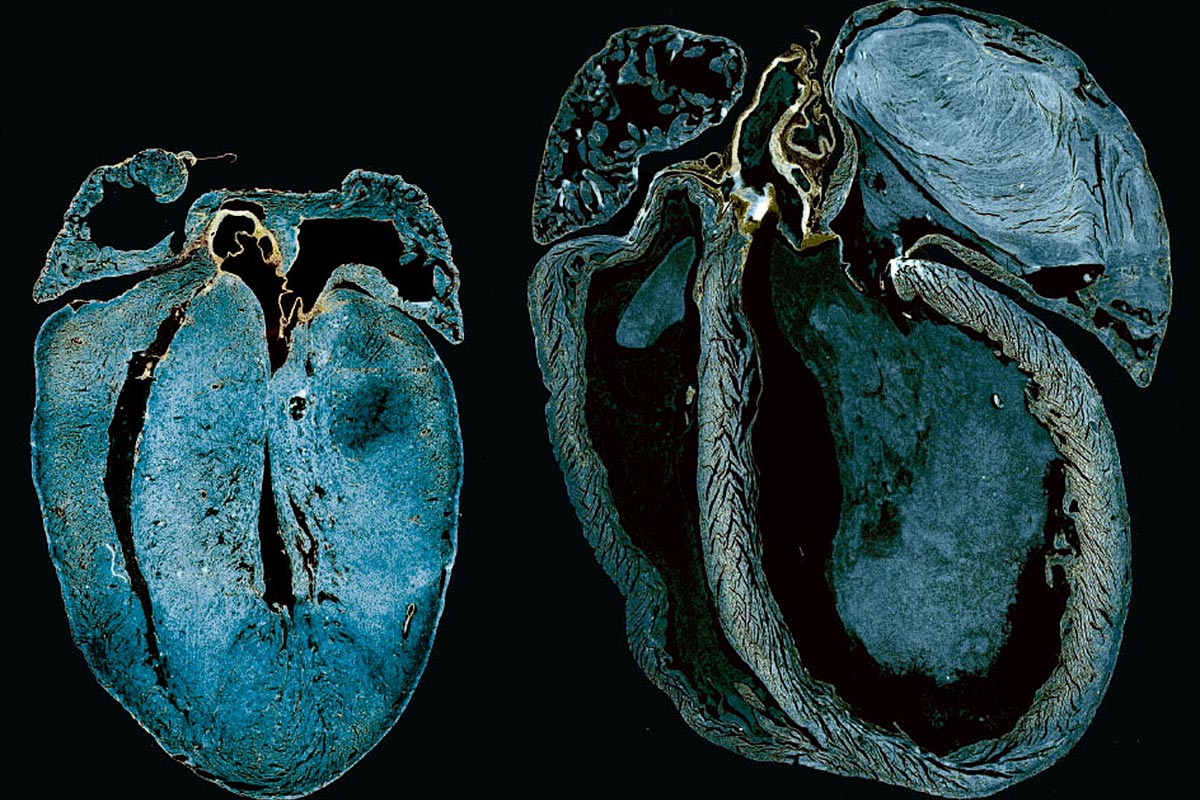Summary of Change in Heart Energy Production May Be Key to Preventing Heart Failure:
This research from the Delgado-Olguín Lab at The Hospital for Sick Children (SickKids) has discovered that one of the earliest signs of heart failure is a change in how the heart produces energy. This change is caused by the protein lysine demethylase 8 (Kdm8) not being active enough, which allows another protein, TBX15, to be more highly expressed and leads to changes in metabolism. The team was able to intervene and prevent heart failure in a mouse model by providing NAD+ injections and boosting energy production. This suggests that it may be possible to alter certain metabolic pathways to prevent heart failure before damage to the heart begins. The research team hopes that this research will spark new research on early identification and preventative treatment.
*****
Early Energy Production Deficiency Could be a Sign of Heart Failure

Sections of a normal heart (left) and a heart in which energy production deficiency caused dilation of the chambers (right), which is a sign of heart failure. Credit: Paul Delgado-Olguin/The Hospital for Sick Children (SickKids)
Heart failure is often identified only when the heart has already deteriorated. This is in large part because the cause is unknown for about 70 percent of people who experience heart failure.
Researchers at The Hospital for Sick Children (SickKids) have discovered that one of the earliest signs of heart failure is a change in how the heart produces energy, with findings offering a potential way to pre-empt heart failure before the heart begins to deteriorate.
Led by Dr. Paul Delgado-Olguín, a Scientist in the Translational Medicine program, and supported by the Ted Rogers Center for Heart Research, the research may also help to explain the diversity of causes underlying heart failure.
“We were surprised to find that dysregulation of energy production was the earliest sign of heart failure,” says Delgado-Olguín. “People associate deficiency in energy production with later stage heart failure, but our findings show this could actually be the cause of heart failure, not a result.”
Changes in energy production signal heart deterioration
In a healthy heart a protein called lysine demethylase 8 (Kdm8) helps to maintain a balanced energy use, also known as metabolism, by repressing TBX15, another protein that decreases energy production.
Published on February 13, 2023, in the journal Nature Cardiovascular Research, the research team analyzed a large dataset on gene expression, the process by which Read the Source Here

